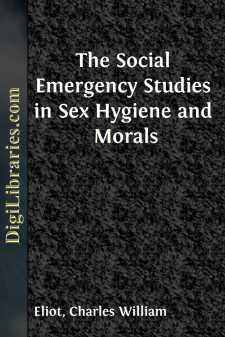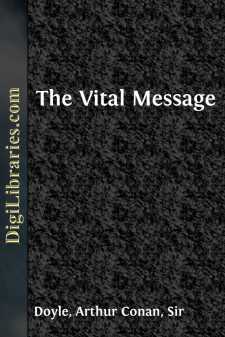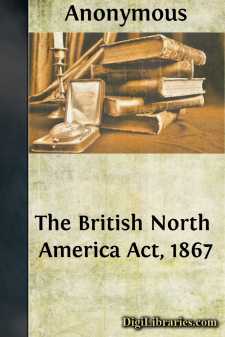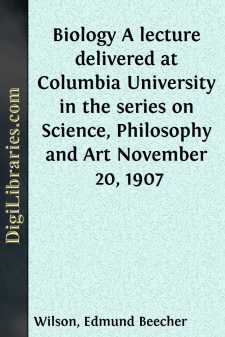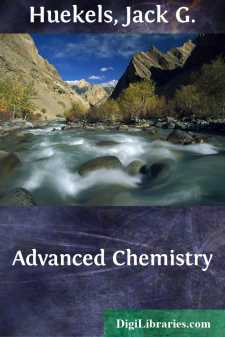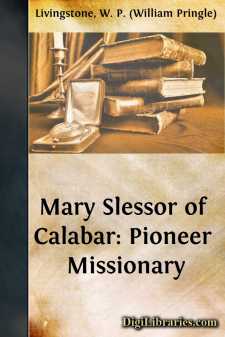Categories
- Antiques & Collectibles 13
- Architecture 36
- Art 48
- Bibles 22
- Biography & Autobiography 813
- Body, Mind & Spirit 142
- Business & Economics 28
- Children's Books 17
- Children's Fiction 14
- Computers 4
- Cooking 94
- Crafts & Hobbies 4
- Drama 346
- Education 46
- Family & Relationships 57
- Fiction 11829
- Games 19
- Gardening 17
- Health & Fitness 34
- History 1377
- House & Home 1
- Humor 147
- Juvenile Fiction 1873
- Juvenile Nonfiction 202
- Language Arts & Disciplines 88
- Law 16
- Literary Collections 686
- Literary Criticism 179
- Mathematics 13
- Medical 41
- Music 40
- Nature 179
- Non-Classifiable 1768
- Performing Arts 7
- Periodicals 1453
- Philosophy 64
- Photography 2
- Poetry 896
- Political Science 203
- Psychology 42
- Reference 154
- Religion 513
- Science 126
- Self-Help 84
- Social Science 81
- Sports & Recreation 34
- Study Aids 3
- Technology & Engineering 59
- Transportation 23
- Travel 463
- True Crime 29
Sort by:
INTRODUCTION By Charles W. Eliot This book is a collection of essays by several authors on the various aspects of social hygiene, and on the proper means of forming an enlightened public opinion concerning the measures which society can now, at last, wisely undertake against the vices and evils which in the human race accompany bodily self-indulgence and lack of moral stamina. Till within five years,...
more...
by:
Steve Solomon
First, you should know why a maritime Northwest raised-bed gardener named Steve Solomon became worried about his dependence on irrigation. I'm from Michigan. I moved to Lorane, Oregon, in April 1978 and homesteaded on 5 acres in what I thought at the time was a cool, showery green valley of liquid sunshine and rainbows. I intended to put in a big garden and grow as much of my own food as possible....
more...
CHAPTER I It has been our fate, among all the innumerable generations of mankind, to face the most frightful calamity that has ever befallen the world. There is a basic fact which cannot be denied, and should not be overlooked. For a most important deduction must immediately follow from it. That deduction is that we, who have borne the pains, shall also learn the lesson which they were intended to...
more...
by:
Anonymous
FOREWORD The Community Cook Book is a collection of recipes chosen from many hundreds that may well be considered representative of the best to be found in any of the more intelligent and progressive of American Communities in which a part of the population make occasional visits to all parts of the country from which they bring back choice recipes to contribute to the neighborhood fund. Added to this,...
more...
by:
Anonymous
I.—PRELIMINARY. 1. [Short Title.] This Act may be cited as The British North America Act, 1867. 2. [Application of Provisions referring to the Queen.] The Provisions of this Act referring to Her Majesty the Queen extend also to the Heirs and Successors of Her Majesty, Kings and Queens of the United Kingdom of Great Britain and Ireland. 3. [Declaration of Union] It shall be lawful for the Queen, by...
more...
BIOLOGY I must at the outset remark that among the many sciences that are occupied with the study of the living world there is no one that may properly lay exclusive claim to the name of Biology. The word does not, in fact, denote any particular science but is a generic term applied to a large group of biological sciences all of which alike are concerned with the phenomena of life. To present in a...
more...
by:
Jack G. Huekels
There is a lot of entertainment and also a great deal of truth in this story. We recommend it highly. Professor Carbonic was diligently at work in his spacious laboratory, analyzing, mixing and experimenting. He had been employed for more than fifteen years in the same pursuit of happiness, in the same house, same laboratory, and attended by the same servant woman, who in her long period of service had...
more...
by:
Hartley Withers
CHAPTER I CAPITAL AND ITS REWARDFinance, in the sense in which it will be used in this book, means the machinery of money dealing. That is, the machinery by which money which you and I save is put together and lent out to people who want to borrow it. Finance becomes international when our money is lent to borrowers in other countries, or when people in England, who want to start an enterprise, get...
more...
Drawings and Pharmacy in al-ZahrÐâÐÐwÐâЫ’s by Sami Hamarneh Probably the earliest independent work in Arabic Spain to embrace the whole of medical knowledge of the time is the encyclopedic al-TasrÐâЫf, written in the late 10th century by AbÐâ¦Ð« al-QÐâÐÐsim al-ZahrÐâÐÐwÐâЫ, also known as Abulcasis....
more...
I. SAVED BY FEAR When the founding of the Calabar Mission on the West Coast of Africa was creating a stir throughout Scotland, there came into a lowly home in Aberdeen a life that was to be known far and wide in connection with the enterprise. On December 2, 1848, Mary Mitchell Slessor was born in Gilcomston, a suburb of the city. Her father, Robert Slessor, belonged to Buchan, and was a shoemaker. Her...
more...


